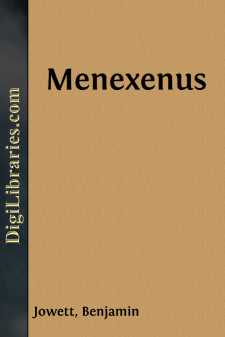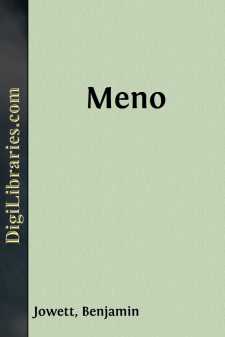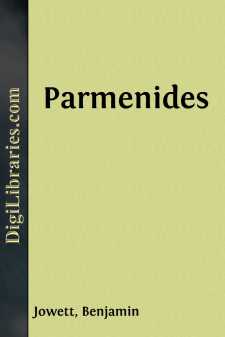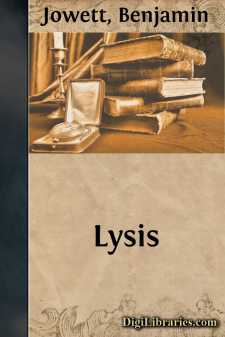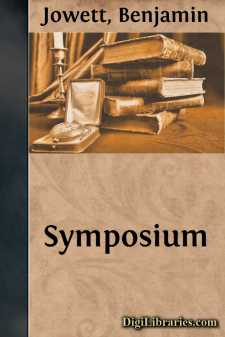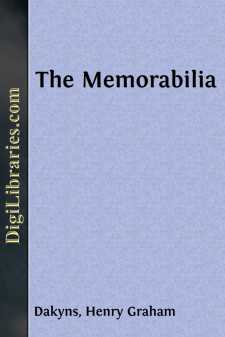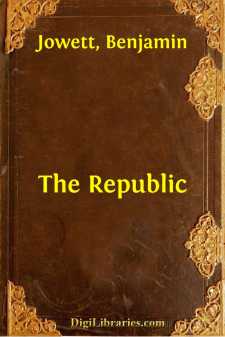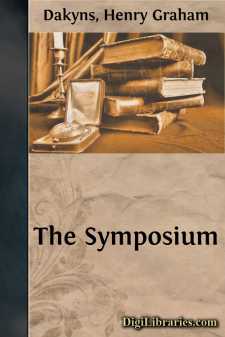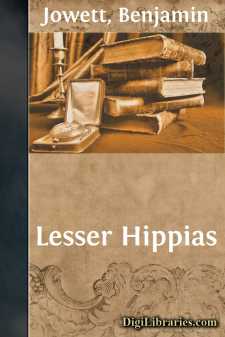Fiction
- Action & Adventure 182
- Biographical 15
- Christian 59
- Classics
- Coming of Age 4
- Contemporary Women 1
- Erotica 9
- Espionage/Intrigue 12
- Fairy Tales, Folklore & Mythology 235
- Family Life 169
- Fantasy 117
- Gay 1
- General 596
- Ghost 32
- Historical 808
- Horror 42
- Humorous 160
- Jewish 25
- Legal 4
- Medical 22
- Mystery & Detective 314
- Political 49
- Psychological 41
- Religious 64
- Romance 158
- Sagas 11
- Science Fiction 730
- Sea Stories 113
- Short Stories (single author) 537
- Sports 10
- Suspense 1
- Technological 8
- Thrillers 2
- Urban Life 29
- Visionary & Metaphysical 1
- War & Military 173
- Westerns 199
Classics Books
Sort by:
by:
Benjamin Jowett
APPENDIX I. It seems impossible to separate by any exact line the genuine writings of Plato from the spurious. The only external evidence to them which is of much value is that of Aristotle; for the Alexandrian catalogues of a century later include manifest forgeries. Even the value of the Aristotelian authority is a good deal impaired by the uncertainty concerning the date and authorship of the...
more...
by:
Benjamin Jowett
INTRODUCTION. This Dialogue begins abruptly with a question of Meno, who asks, 'whether virtue can be taught.' Socrates replies that he does not as yet know what virtue is, and has never known anyone who did. 'Then he cannot have met Gorgias when he was at Athens.' Yes, Socrates had met him, but he has a bad memory, and has forgotten what Gorgias said. Will Meno tell him his own...
more...
by:
Benjamin Jowett
INTRODUCTION AND ANALYSIS. The awe with which Plato regarded the character of 'the great' Parmenides has extended to the dialogue which he calls by his name. None of the writings of Plato have been more copiously illustrated, both in ancient and modern times, and in none of them have the interpreters been more at variance with one another. Nor is this surprising. For the Parmenides is more...
more...
by:
Benjamin Jowett
INTRODUCTION. No answer is given in the Lysis to the question, 'What is Friendship?' any more than in the Charmides to the question, 'What is Temperance?' There are several resemblances in the two Dialogues: the same youthfulness and sense of beauty pervades both of them; they are alike rich in the description of Greek life. The question is again raised of the relation of knowledge...
more...
by:
Benjamin Jowett
INTRODUCTION. Of all the works of Plato the Symposium is the most perfect in form, and may be truly thought to contain more than any commentator has ever dreamed of; or, as Goethe said of one of his own writings, more than the author himself knew. For in philosophy as in prophecy glimpses of the future may often be conveyed in words which could hardly have been understood or interpreted at the time...
more...
BOOK III have often wondered by what arguments those who indicted (1) Socrates could have persuaded the Athenians that his life was justly forfeit to the state. The indictment was to this effect: "Socrates is guilty of crime in refusing to recognise the gods acknowledged by the state, and importing strange divinities of his own; he is further guilty of corrupting the young." (1) {oi...
more...
by:
Benjamin Jowett
BOOK I. I went down yesterday to the Piraeus with Glaucon the son of Ariston, that I might offer up my prayers to the goddess (Bendis, the Thracian Artemis.); and also because I wanted to see in what manner they would celebrate the festival, which was a new thing. I was delighted with the procession of the inhabitants; but that of the Thracians was equally, if not more, beautiful. When we had finished...
more...
IFor myself, (1) I hold to the opinion that not alone are the serious transactions of "good and noble men" (2) most memorable, but that words and deeds distinctive of their lighter moods may claim some record. (3) In proof of which contention, I will here describe a set of incidents within the scope of my experience. (4) (1) See Aristid. ii. foll. (2) Or, "nature's noblemen." (3)...
more...
by:
Benjamin Jowett
APPENDIX I. It seems impossible to separate by any exact line the genuine writings of Plato from the spurious. The only external evidence to them which is of much value is that of Aristotle; for the Alexandrian catalogues of a century later include manifest forgeries. Even the value of the Aristotelian authority is a good deal impaired by the uncertainty concerning the date and authorship of the...
more...
ITo the gods themselves is due the discovery, to Apollo and Artemis, patrons of the chase and protectors of the hound. (1) As a guerdon they bestowed it upon Cheiron, (2) by reason of his uprightness, and he took it and was glad, and turned the gift to good account. At his feet sat many a disciple, to whom he taught the mystery of hunting and of chivalry (3)—to wit, Cephalus, Asclepius, Melanion,...
more...


